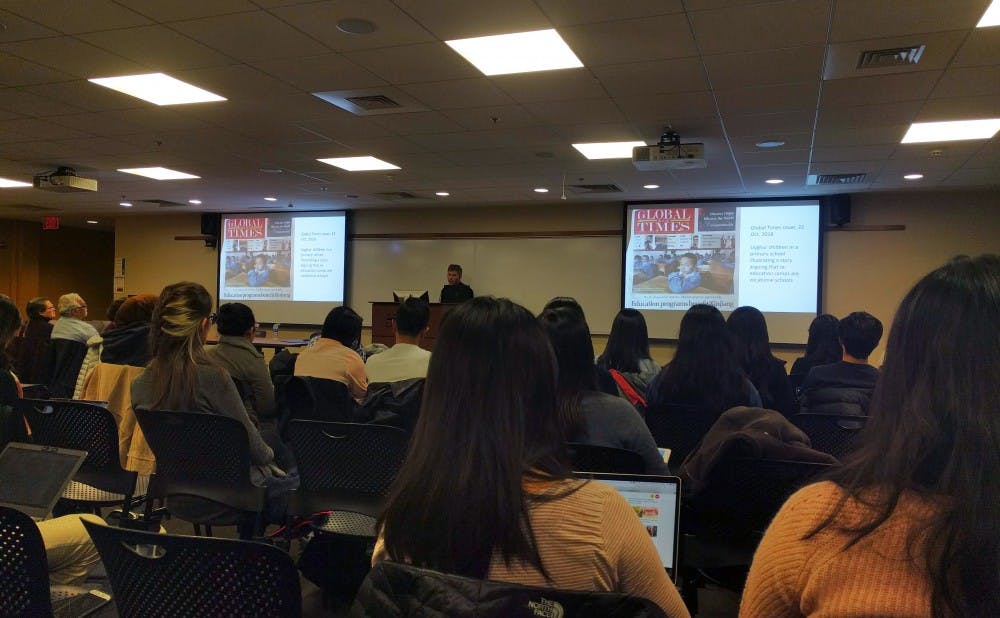A Georgetown professor described the plight of the Uyghurs, a minority group living in China, at a talk Wednesday.
James Millward, professor of intersocietal history at Georgetown University, began his talk Wednesday night by describing today as a terrifying, extraordinary moment in China. Hosted by the Duke East Asia Nexus, his talk focused on the research he has done about the repression of the Uyghurs and the alarming expansion of internment camps that the predominantly Muslim Turkish ethnic group have been put in, particularly since 2017.
Although it is currently unknown just how many Uyghurs live in these “re-education” camps, the number could range from 100,000 to more than a million, Millward said.
"According to official statements, these camps are for people who have committed violent offenses,” Millward said.
However, he added that so-called violent offenses have expanded through the years as the definition of extremism has changed. Now, Millward said, these people in Xinjiang are living in a police state. The professor said that China has tried to propagandize these camps as places where minority groups can learn the common language and gain knowledge on Chinese culture, often showing smiling students or a lot of dancing as the primary image to the outside world.
Millward said that people who have made it out of the camps have described horrid living conditions—including eight to 12 people in a room, a central bucket for a toilet, forced calisthenics, singing propaganda songs, watching propaganda films and being forced to disavow Islam.
“These Maoist-type techniques have led to many suicides and attempted suicides,” Millward said.
Deaths in these camps are also mysterious, Millward explained, as no one actually knows if their relatives or friends are being killed by natural cause or at the hands of guards.
Millward compared the Xinjiang internment camps to Japanese internment camps in the United States and Nazi concentration camps of the 20th century. As Western media found out about the campus, the state has now changed its response by labeling the camps as “vocational training centers.” In China's first acknowledgement of the existence of camps last month, it legalized them but still denies they are internment camps.
"The China Communist party describes Chinese identity and Muslim identity as binary opposites,” the professor said.
The Chinese government also claims that these “training centers” are used to make the Uyghurs “less Islamic and more Chinese,” Millward added.
After the talk concluded, a brief question and answer session ensued.
Millward answered a student’s question about the increase of Islamophobia in Western nations—like Germany and the United States—by citing the rise as a reflection of Muslims being demonized internationally.
Senior Aydin Anwar, president of Duke Muslims’ Student Association and a Uyghur-American, was at the talk. Hearing Millward speak about the atrocities was jarring, Anwar added. The senior said that one of her relatives was killed in a camp last year.
“I thought this talk was informative in shedding lights on the Chinese internment camps, which much of the world, including the Chinese community, knows little about," Anwar stated. "It was hard for me to see images of the camps knowing that dozens of my relatives are in these camps and that the guards are torturing and killing many of them."
Get The Chronicle straight to your inbox
Signup for our weekly newsletter. Cancel at any time.

